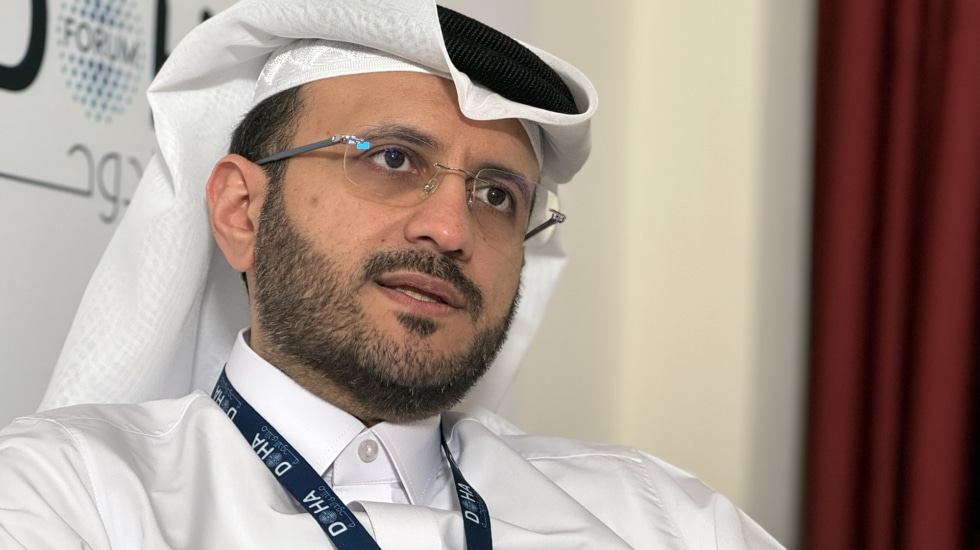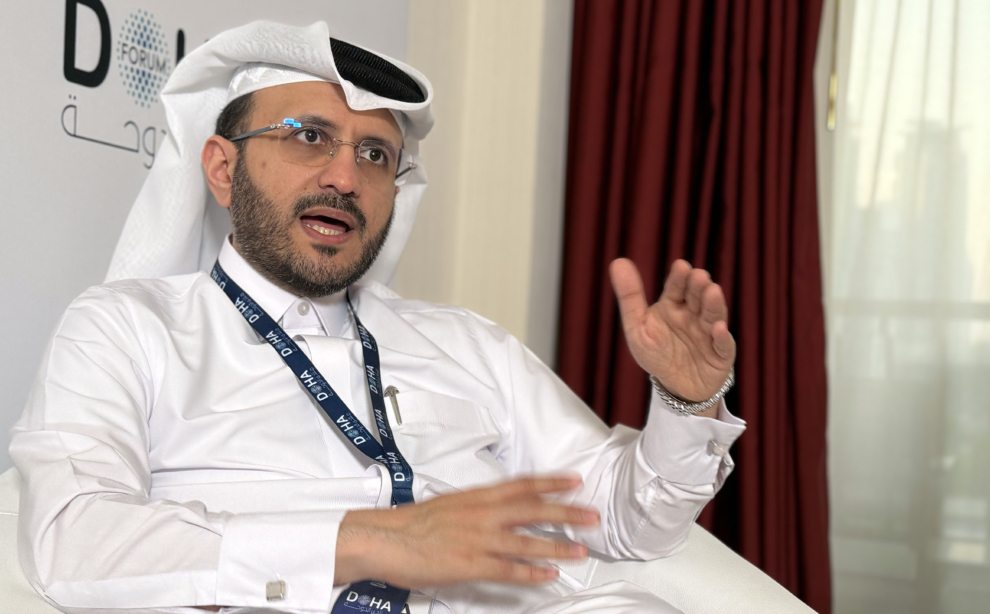

Majed Al Ansari, spokesman for the Qatari Ministry of Foreign Affairs.
The Mossad delegation left Doha more than a week ago. The main Hamas leaders, some of whom have permanent residence in the country, are also not in Doha these days. But the Qatari mediation claims to have “open channels” with both sides as Israeli military operations continue to strike the Gaza Strip, killing at least 300 people in the past 24 hours and Arab countries warning of Israeli intentions achieve the forced transfer of the population of Gaza to Egypt and take control of the territory.
“We are currently continuing negotiations. Apparently, the pause ended when both sides failed to produce viable lists on the eighth day and therefore the parameters of the agreement were not met. However, communication channels remain open. “Our negotiators continue to talk to both sides,” he admits. Independent Majed al-AnsariQatari Foreign Ministry spokesman and one of the main negotiators that reached a week-long truce in late November that allowed the release of 109 Israeli and foreign hostages.
We need a more sustainable truce, not just a pause that is renewed day after day.
“We now believe that we should strive for a broader agreement that would completely resolve the hostage issue and lead to a more sustainable pause leading to a complete ceasefire,” Al-Ansari avoids. Despite recent setbacks, the Qataris remain determined to do their part to end the fighting. “We continue to move forward tirelessly, despite the difficulties. And from day one, we made the decision through our leaders that whatever can be done, we will do it, no matter whether we are in danger, what problems we face or the impossibility of the situation on the ground, because every day we put off our work as intermediaries, more lives are lost,” he emphasizes.

Agreement including Israeli soldiers
“We need an agreement that would solve the hostage problem comprehensively, not piecemeal, that would provide for a more sustainable truce, and not just a pause for every day of its extension. And we need an agreement that would resolve all issues at the same time. So we’re talking about humanitarian access through Rafah, opening up other corridors, getting aid to the north, water, electricity and communications, being able to move people in and out of Gaza to provide aid, and those who want to leave Gaza. All this must be part of this new agreement,” they say from Doha.
The Qatari mediator admits that one of the obstacles to continuing the truce has been disagreements over whether there are still civilian hostages in the Gaza Strip. Israel insists on an extreme that Hamas denies. Doha understands that we must start talking about exchanging Israeli soldiers, women and men, for Palestinian prisoners in Israeli prisons. “The original agreement was specifically for women and children, and the logic was to move from women and children to civilian men and soldiers. And now we hope that we can reach a broader agreement that includes language that all parties can agree to so that all hostages are released. However, the escalation on the ground does not allow this to be done at the moment. But we are confident that with our relentless pressure from our partners in the region and with the help of the United States, we will bring people back to the negotiating table.”
We know that no one has influence over Israel except the Americans.
Doha believes that progress can soon be made and that the results achieved so far indicate that “dialogue is the way.” They stress that the hostages who have so far regained their freedom have done so through negotiations and “not thanks to the Israeli military campaign, which has failed” in its missions to rescue people in captivity. “Sixty days after it began, not a single Israeli hostage has been released, and there are recent indications that there was a rescue operation that resulted in the death of a hostage,” the Qatari Prime Minister noted this Sunday.
For Al-Ansari, American involvement and its ability to put pressure on Israel is vital. “And it is obvious that it is the influence of the United States on Israel that will help achieve an agreement. And we always talk to our partners in the United States about the need for them to push even harder for peace in this regard, because at the end of the day, we know that no one has influence over Israel except the Americans.”
“Wanting to destroy Hamas is illogical”
Qatar also admits that it is unclear to them the ultimate goal of Benjamin Netanyahu’s government and refuses to talk about the future. They are also skeptical about the feasibility of these goals. “We are getting different scenarios of how the game will end for the Israelis and we have to be realistic about what the ending of the game will be. Because saying you want to completely end Hamas is illogical. International estimates place between 30,000 and 40,000 militants in the Gaza Strip.. But Hamas’s problem is not 30,000 or 40,000 fighters in the Gaza Strip. It is the Hamas ideology that will remain and will likely become stronger,” warns Al-Ansari.
They also predict that Israeli attacks on the Gaza Strip, far from weakening Hamas, will broaden its support base as well as support for the Palestinian cause and its 75-year struggle. “Sympathy for the cause of resistance, for the cause of a Palestinian state, is something you will find among all Palestinians, and not just among Palestinians. “If you look at public opinion in the Arab and Muslim world today, if you look at public opinion in the West, support for the Palestinian cause is growing.”
Our collective goal is to achieve a situation in which Israelis and Palestinians can feel safe.
One of the current challenges, as senior Qatari officials admit, is to seduce the Israelis and soften their desire to continue a military operation with destabilizing consequences for the already fire-ravaged region. “We must convince the Israelis that they must accept the agreement, firstly, for humanitarian reasons and, secondly, because their own security requires that this war end as soon as possible.. With each passing day, the prospects for peace for Israelis and Palestinians diminish further. Our collective goal now is to achieve a situation where Israelis can feel safe and Palestinians can feel safe. Every resident of the region can feel safe. No one is safe now,” admits Al Ansari.
The rest now is to restore the short-lived trust that led to the first humanitarian pause. “You start with a small agreement as a trust test and then build from there. Every day of peace is a day on the path to peace. And that’s what we need to do now. From day one, we have four priorities: ending the war, opening humanitarian corridors, preventing the regional spread of this war, and returning all hostages and prisoners to their families.”
Source: El Independiente